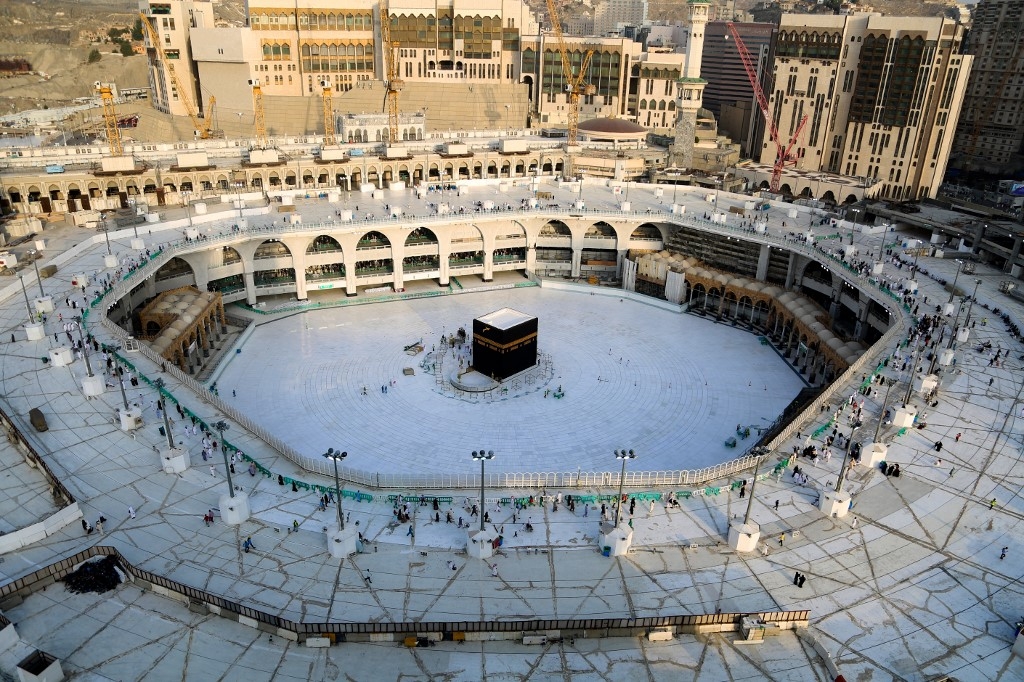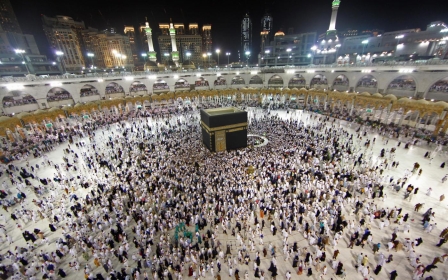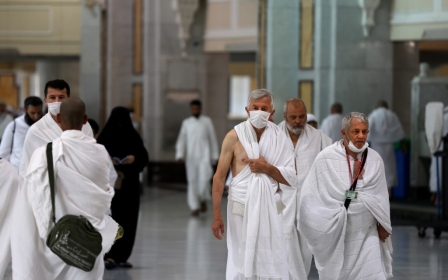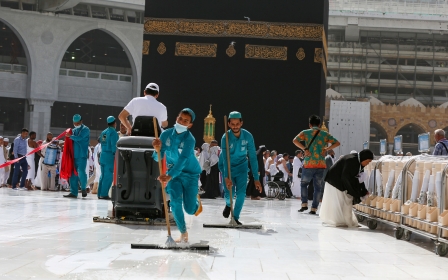Saudi Arabia announces extraordinary measures to protect Mecca and Medina from coronavirus

Saudi Arabia has introduced a series of measures to protect the two holy mosques of Mecca and Medina from the coronavirus.
According to Saudi officials, the new rules include the closure of both mosques between the evening Isha prayers and morning Fajr prayers, and a ban on food entering the two complexes.
Mount Safa and Mount Marwa inside the Great Mosque in Mecca will also be closed until a ban on Umrah pilgrimages is lifted. Zamzam water dispensaries within both mosques will also be closed off.
The measures come after local authorities closed off the interior of the Great Mosque in Mecca until Friday morning prayers to allow cleaning teams to disinfect the tawaf area near the Kaaba, a black boxed structure in the mosque complex.
Pictures posted online showed the tawaf area empty as pilgrims were barred from entering the mosque, known as Masjid al-Haram, during the cleaning exercise.
New MEE newsletter: Jerusalem Dispatch
Sign up to get the latest insights and analysis on Israel-Palestine, alongside Turkey Unpacked and other MEE newsletters
Earlier this week, Riyadh introduced a ban on Saudi citizens, residents and foreigners hoping to visit Mecca and Medina for the Umrah pilgrimage.
Umrah is a pilgrimage to Mecca that can be undertaken at any time of the year and is not considered compulsory. Pilgrims often visit the Prophet's mosque, also known as Masjid al-Nabawi, before or after visiting the Great mosque in Mecca.
Riyadh reported its first case of the coronavirus on Monday. Local authorities said the patient was a Saudi national returning from Iran, which has reported the most deaths outside of China.
A health ministry spokesperson said Saudi Arabia was preparing 25 hospitals to handle any coronavirus cases that might be detected.
The kingdom, which hosts the two holiest sites of Islam, welcomes millions of Muslim visitors throughout the year with a peak for the Hajj pilgrimage.
Almost seven million people visit Mecca annually to perform Umrah. Prior to visiting Saudi Arabia, pilgrims are required to provide certificates of vaccinations in their visa applications.
It remains unclear how long the ban on Umrah pilgrimages will be implemented, but travel agencies told MEE that Saudi Arabia introduced the restrictions to prepare for the coronavirus.
Middle East Eye delivers independent and unrivalled coverage and analysis of the Middle East, North Africa and beyond. To learn more about republishing this content and the associated fees, please fill out this form. More about MEE can be found here.




